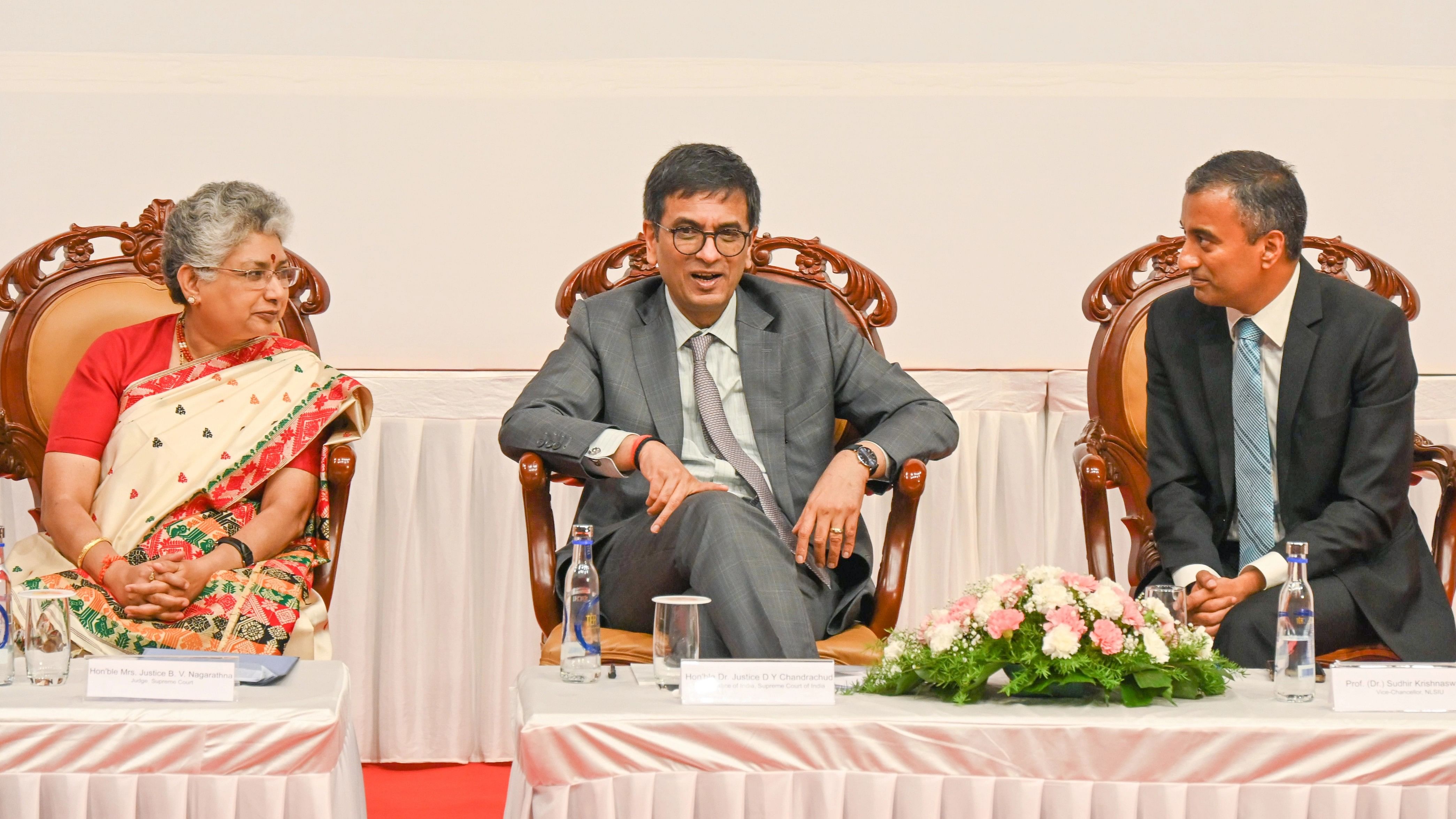
Chief Justice of India D Y Chandrachud flanked by Supreme Court judge Justice B V Nagarathna and NLSIU Vice Chancellor Prof Sudhir Krishnaswamy at the inaugural Justice E S Venkataramiah Centennial Memorial Lecture at Jnanajyothi auditorium in Bengaluru on Sunday.
Credit: DH Photo/S K Dinesh
Bengaluru: Chief Justice of India D Y Chandrachud on Sunday said that for freedom of expression to exist truly, it must exist in both private and public spaces and cannot exist in one and not in the other.
The CJI made the remarks during the inaugural Justice E S Venkataramiah Centennial Memorial Lecture organised by the National Law School of India University (NLSIU) here.
Speaking on the theme of ‘Constitutional imperatives of the state navigating discrimination in public and private spaces’, the CJI said that our sense of justice evolves when we are ready and willing to open our minds beyond the assumptions that society has taught us to hold.
“Only when we have an open mind are we likely to feel the need to deviate from some of these base assumptions to curate our own sense of justice,” he said.
The CJI said there was a need to look beyond the binary of what is public and private and “search for the grievances that underlie both these spheres.”
“For instance, the household, which is understood as a private space, is a sight of economic activity by a homemaker who is not remunerated for it. Similarly, in public spaces, women are consigned to distinctively feminine, service-oriented and often sexualised occupations. Thus both sides involve rights and their infringement,” the CJI said.
“However, if the law chooses that it will interfere only in the latter, namely the public spaces, perhaps because of its visibility, the law would be unjust. The framers of our Constitution did not envisage such a geographical application of the law.
“Fixating on the public-private rather than identifying both of their common problems furthers stereotypes about gender, ableism and many such identities. These stereotypes create a self-perpetuating loop of who belongs where and entrench the unjust outcomes of both the public and the private,” he added.
The Chief Justice further said that to truly overcome the stereotypical roles, the law and policy should transcend the public-private dichotomy and address power imbalances regardless of their location.
“This requires a comprehensive approach that considers societal context, the historical perspectives and the jurisprudence of discrimination law. By doing so, we pave the way for a society where equality is not merely a slogan but a lived reality for all our members. The legal landscape must evolve weaving a tapestry that accommodates differences, eradicates biases and ensures substantive equality.”